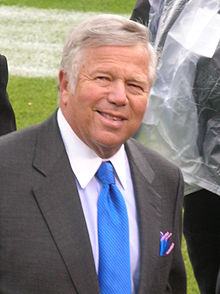
South Florida courts are adapting to Zoom and the high-profile case involving New England Patriots football team owner, Robert Kraft, has taken an unexpected but necessary turn as the state appellate court decided to continue the case with full public exposure.
The pandemic has halted most in-person court hearings for the past two months. In lieu of this, the Florida Supreme Court and various lower courts have begun using Zoom or similar platforms to conduct hearings.
On May 12, the court ordered that Kraft’s hearing will be conducted using remote technology. This statement was made by the presiding judges, Robert M. Gross, Melanie G. May, and Cory J. Ciklin.
Lawyers will now argue Kraft’s massage parlor prostitution case on Zoom videoconferencing and the public will be able to watch the session, which is set for June 30, live on their devices.
However, since the public will not be able to watch as Zoom participants, the Fourth District Court of Appeal has made provisions for the session to be streamed online on its website.
All of the court’s oral argument sessions are available for the public to watch online. Court records on high-profile cases such as this are also accessible on florida.courtrecords.org.
The reason for the live virtual session is likely because the hearing involving Kraft and others accused is expected to involve at least 16 lawyers. This makes it very difficult to conduct a court session while maintaining health authorities’ guidelines of physical distancing.
Meanwhile, lawyers for the billionaire businessman have repeatedly clamored for a more private in-person hearing. Their main premise implies that the process will be significantly more cumbersome and challenging over Zoom.
“Under these circumstances, holding the oral argument in person rather than by Zoom would best enable the Court to protect, control, and ensure the integrity of the proceedings,” wrote Frank Shepherd, the defense attorney.












